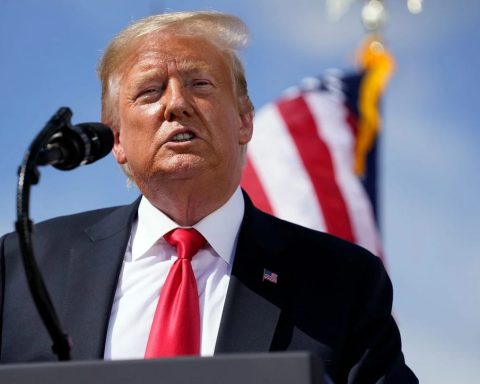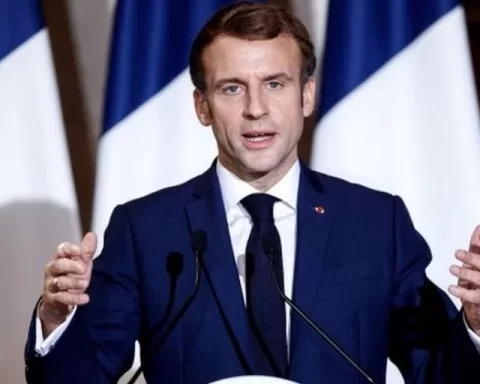The Governor, Central Bank of Nigeria( CBN), Olayemi Cardoso and his team assumed office at the peak of a crisis of confidence in the economy and financial system generally and CBN in particular.
The crisis of confidence was due to some outstanding policy issues of the previous management of the Bank, and in highlighting the situation, President Bola Ahmed Tinubu noted in a press report that the financial system was “rotten.”
Join our WhatsApp ChannelOn assumption of office, the CBN Governor acknowledged the enormity of the challenges and promised that they would work hard to find solutions to the problems and would not betray trust.
Cardoso, an experienced banker and public policy expert started by rolling back the operating frontiers of CBN to enhance focus and efficiency and he assured that the economy would experience significant stability in the short to medium term.
Accordingly, former Minister of Finance and Coordinating Minister of the Economy and now Director- General, World Trade Organisation( WTO) recently acknowledged that the economy had achieved stability and credited it to the reforms under President Tinubu.
In achieving stability, CBN focused particularly on two major commitments, namely; deescalating inflation through a consistent tight monetary policy and achieving exchange rate stability through various policy reforms.
Both the Lagos Chamber of Commerce and Industry( LCCI) and the World Bank, commended the Bank’s policies, though the former also expressed concern on the impact of the tight monetary policy( hike in interest rate) on businesses and citizens.
CBN’s tight monetary policy, besides deescalating inflation, also stimulated a wave of capital inflows; mostly foreign portfolio investments into the economy and markets.
According to the National Bureau of Statistics( NBS), capital inflow from the United Kingdom amounted to USD 3.68 billion( N5.52 trillion) in first quarter Q1 2025 and which accounted for 65.26 percent of the total inflow of USD5.6 billion for the period.
It was followed by South Africa with an inflow of USD 501.29 million or 8.88 percent. Next was Mauritius with an inflow of USD394.51million or 6.99 percent and USA with an inflow of USD368.92 million or 6.54 percent.
Other sources of capital inflows include the United Arab Emirates- USD 301.72 million or 5.35 percent, Cayman Island- USD114.76 million, France- USD47.33 million, Netherlands- USD 42.68 million and Singapore- USD36.79 million.
A report on the website of the Nigerian Exchange Group( NGX) shows an inflow of foreign portfolio investments of N1.28 trillion for the seven months ended July 31, 2025, compared with N598billiion recorded in the corresponding period in 2024.
Reportedly, “the surge in foreign portfolios supported total transactions at the NGX to a seven- month record of N6.01trillion recorded in the comparable period of 2024.”
According to NGX, the inflows “showed substantial increases in two-way transactions by foreign investors, a measure of active participation and tracking of the Nigerian market by global investment fund managers.”
Foreign Portfolio Investors are quick gain seekers who gravitate to economies and markets with high interest rates and favourable exchange rates.
Foreign portfolio inflows have advantages in the host economies. They provide domestic businesses a wider access to cheaper funds, creates liquidity and increases the velocity of stock markets.
They create wealth for local investors through higher stock/ asset prices, improves the host country’s balance of payments, strengthen the exchange rate and stimulate economic growth.
But caution is the word because they also have disadvantages that are capable of destabilizing markets and economies.
Foreign Portfolio inflows are hot money seeking quick gains. They are short- term, speculative and volatile funds that have no loyalty to markets and economies.
They stream into markets in phases but the outflows are often rapid and en masse in and which can cause a rapid change in exchange rate and trigger economic and financial markets instability.
The Nigerian Stock market meltdown of 2005/ 2008 was partly caused by the sudden and mass outflows of foreign portfolios due to the US global financial crisis and the banning of margin loans granted to Stockbrokers, by CBN.
Both developments resulted to a massive dumping of shares in the stock market and which led to a rapid and uncontrollable drop in share prices until the market collapsed.
The European monetary crisis in 1992 and the Asian financial crisis in 1997 which collapsed the economy of Thailand and resulted in massive layoffs were also due to the mass exit of portfolio investors.
The Thailand stock market also dropped 75 percent in one year and the baht, the official currency lost more than half of its value.
Also the Mexican financial crisis of 1994 was due to the mass outflows of portfolio investments. The dynamic of the Mexican crisis was complex but the final trigger was the devaluation of the Peso, the country’s currency by the Mexican Central Bank after it had earlier promised not to devalue.
Mexico enjoyed investors confidence until the devaluation of the Peso by 15 percent. Foreign portfolio investors lost confidence and became skeptical and fearful of additional devaluation.
They started rapid withdrawal of capital from Mexican investments and selling off shares as the Mexican Stock Exchange plummeted.
The Mexican central bank tried to halt the capital outflows by raising interest rate but faced another challenge of higher borrowing cost which hindered economic growth.
Investors lost interest in purchasing new debt obligations even when it was time for the Mexican central bank to roll over its maturing debt obligations.
With further developments, foreign portfolio investors exited Mexico en masse in a typical demonstration of the ‘herd mentality’.
The crisis created a financial contagion known as the ” Tequila Effect” throughout other financial markets in Asia and the Americas and resulted to a USD50 billion bail out by the International Monetary Fund (IMF)
In an article titled “The Mexican Peso Crisis- Implications for International Finance”, Edward M. Truman of the Federal Reserve Board noted that developing countries were more vulnerable to shocks in today’s globalised capital markets.
He advised authorities in developing countries to pay a good deal more attention than they had in recent past to potential shocks both external and internal and emphasised the need for them to develop their own early warning systems.
CBN’s tight monetary policy has stimulated capital inflows into the financial markets including the stock market which is advantageous to the economy.
But in view of the negative potentials of foreign portfolio inflows and the aforementioned experiences in other countries and Edward Truman’s advice, it is expected that CBN, NGX and other related regulatory institutions would be proactive to continually ensure financial markets and macroeconomic stability, going forward.
CBN is driving the wheels of the economy through strategic reforms that have thus far set the economy on a better pedestal and if the inflation rate continues to drop the Bank may over time relax the tight monetary policy to drive growth.
Nwobu, a Chartered Stockbroker and Business Journalist wrote via arizenwobu@yahoo.com Tel 08033021230.
- Editor
- Editor
- Editor
- Editor
- Editor










